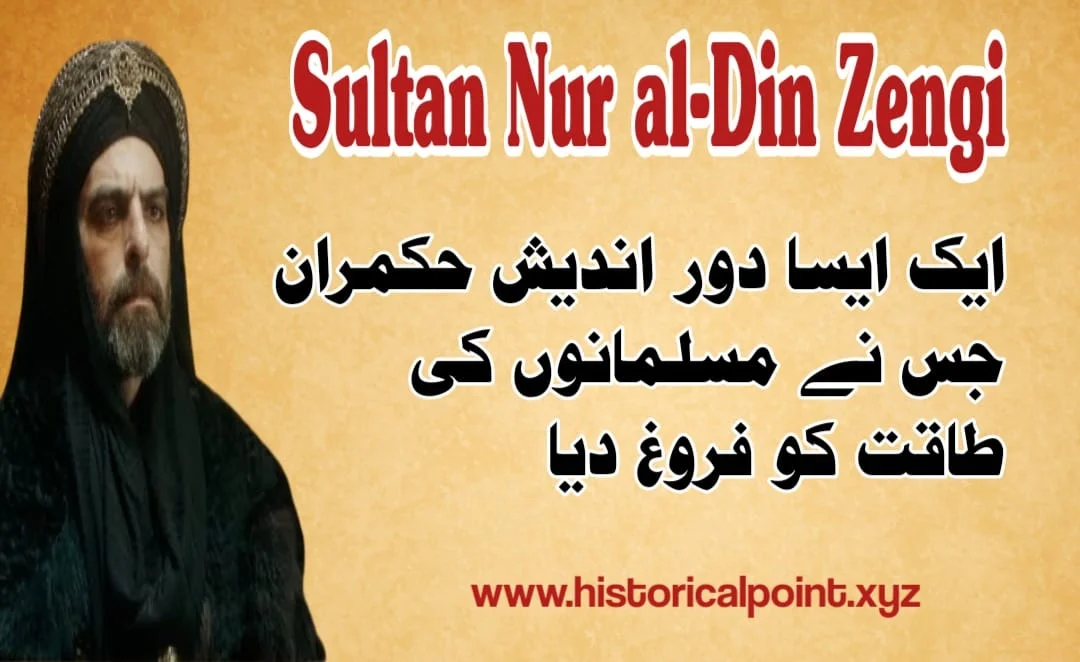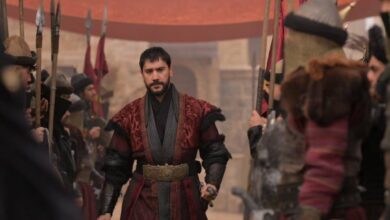
Sultan Nur al-Din Zengi: A Beacon of Justice and Defender of Islam
Discover legacy of Sultan Nur al-Din Zengi, a just ruler and pivotal figure in the Crusades who unified Muslim states and championed justice. Sultan Nur al-Din Zengi, also known as Nur al-Din Mahmud Zengi, is a significant figure in Islamic history, particularly during the 12th century.
His reign as a ruler in the Middle East is marked by his efforts to unify the Muslim states and his staunch opposition to the Crusaders. His legacy is one of justice, piety, and military prowess. This blog delves into his life, achievements, and lasting impact on the region and the Islamic world.
Early Life and Background
Nur al-Din Mahmud Zengi was born in February 1118 in Aleppo, part of modern-day Syria. He was the son of Imad ad-Din Zengi, the founder of the Zengid dynasty and a formidable military leader who had successfully captured the city of Edessa from the Crusaders in 1144. This victory was one of the first major Muslim successes against the Crusader states and set the stage for Nur al-Din’s future endeavors.
Imad ad-Din Zengi’s sudden death in 1146 left his territories divided between his sons, with Nur al-Din inheriting Aleppo and his brother Saif al-Din Ghazi I taking control of Mosul. Nur al-Din, however, harbored ambitions beyond his inherited lands, aiming to unify the Muslim territories and drive out the Crusaders.
Rise to Power of Sultan Nur al-Din Zengi
Nur al-Din’s rise to power was marked by strategic acumen and military prowess. He quickly consolidated his control over Aleppo and began extending his influence over other Syrian cities. One of his earliest challenges came from within, as various local emirs sought to assert their independence or align with the Crusaders for personal gain. Nur al-Din, however, was resolute and adept at both diplomacy and warfare.
In 1149, Nur al-Din achieved a significant victory against the Crusaders at the Battle of Inab. This battle not only demonstrated his military capabilities but also served as a rallying point for Muslim unity against the foreign invaders. Following this victory, Nur al-Din adopted the title “al-Malik al-Adil” (The Just King), reflecting his commitment to justice and righteous governance.
Consolidation of Power
By the mid-1150s, Nur al-Din had successfully consolidated his control over most of Syria, including key cities such as Damascus, Homs, and Hama. His reign was characterized by a focus on justice and the welfare of his subjects. He established a reputation for being a just ruler, ensuring that his governors and officials adhered to strict ethical standards.
One of the most notable aspects of Nur al-Din’s rule was his emphasis on building a strong administrative framework. He reformed the tax system, ensuring that revenues were collected fairly and efficiently. This financial stability allowed him to fund his military campaigns and public works projects, further enhancing his legitimacy and support among the populace.
Military Campaigns and the Crusades
Nur al-Din’s primary objective was to expel the Crusaders from the Levant. He recognized that achieving this goal required not only military might but also the unification of the Muslim states. To this end, he pursued alliances with other Muslim leaders and worked tirelessly to foster a sense of common purpose among them.

One of Nur al-Din’s significant military achievements was the capture of the strategically important city of Banias in 1164. This victory further weakened the Crusader states and bolstered Nur al-Din’s reputation as a formidable leader. His successes continued with the capture of the Crusader fortress of Harim in 1164 and the defeat of a Crusader army at the Battle of al-Buqaia in 1163.
However, Nur al-Din’s most significant military achievement was his role in the eventual capture of Jerusalem. Although he did not live to see the city’s fall, his efforts laid the groundwork for its eventual recapture by his successor, Salah ad-Din (Saladin). Nur al-Din’s unrelenting pressure on the Crusader states weakened their hold on the region and set the stage for Saladin’s successful campaign.
Religious and Cultural Patronage
Nur al-Din was not only a warrior but also a devout Muslim and a patron of religious and cultural institutions. He believed in the importance of Islamic education and scholarship and supported the establishment of madrasas (Islamic schools) and mosques throughout his realm. His commitment to promoting Islamic learning and piety endeared him to his subjects and reinforced his legitimacy as a ruler.
One of Nur al-Din’s most enduring legacies is the construction of the Nur al-Din Mosque in Damascus, completed in 1163. This mosque, known for its architectural beauty and historical significance, remains a testament to his dedication to Islamic culture and worship. Additionally, Nur al-Din supported scholars, poets, and theologians, fostering a vibrant intellectual environment in his domains.
Legacy and Impact
Nur al-Din Zengi’s legacy is multifaceted, encompassing his military achievements, administrative reforms, and commitment to justice and piety. His efforts to unify the Muslim states and resist the Crusaders had a lasting impact on the region and the Islamic world.
Click here to read the History of Salahuddin Ayubi.
Unification and Resistance
Nur al-Din’s vision of a unified Muslim front against the Crusaders was instrumental in shaping the political landscape of the Levant. His campaigns not only weakened the Crusader states but also inspired other Muslim leaders to join the struggle. His successor, Saladin, built upon Nur al-Din’s foundations and eventually achieved the recapture of Jerusalem in 1187, a momentous event in Islamic history.
Justice and Governance
Nur al-Din’s reputation as a just ruler resonated with his subjects and set a standard for ethical governance. His administrative reforms, focus on justice, and efforts to curb corruption left a positive legacy in the regions he ruled. His emphasis on fairness and the welfare of his people is still remembered and celebrated in Islamic history.
Cultural and Religious Patronage
Nur al-Din’s support for Islamic education, scholarship, and religious institutions contributed to the intellectual and cultural vibrancy of his era. The madrasas and mosques he established became centers of learning and spirituality, nurturing future generations of scholars and leaders.
Conclusion
Sultan Nur al-Din Zengi’s life and reign are a testament to his unwavering commitment to justice, piety, and the defense of Islam. Moreover, his efforts to unify the Muslim states and resist the Crusaders had a profound and lasting impact on the region.
As a result, his legacy as a just ruler, military strategist, and patron of Islamic culture continues to inspire and be remembered in the annals of Islamic history. Consequently, through his achievements, Nur al-Din Zengi stands as a beacon of justice and a defender of the faith, leaving an indelible mark on the history of the Middle East and the Islamic world.



